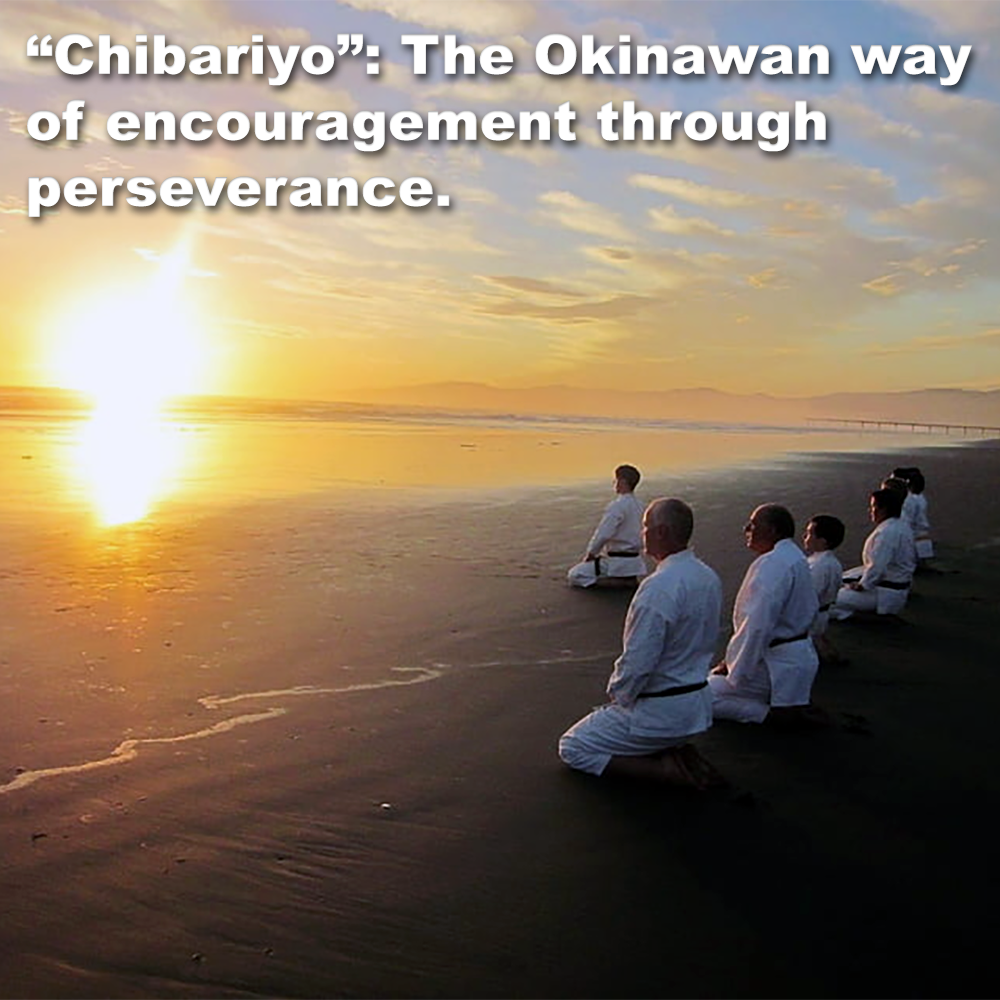
(Approx 1 minute 10 second read)
The Ryukyu Kingdom, the historical heart of modern-day Okinawa, fostered a unique culture distinct from mainland Japan.
.
This distinctiveness extends to language, with Okinawan dialects collectively known as Uchinaaguchi.
.
Many karate practitioners, myself included, appreciate using the Japanese terminology that’s part of our practice. While most practitioners utilize it primarily for principles, techniques, drills, and kata, some incorporate it (or try to) into everyday language.
.
Uchinaaguchi, the Okinawan language, presents a steeper learning curve. However, the power and resonance of certain Uchinaaguchi words make them particularly meaningful.
.
One powerful word that embodies the Okinawan spirit is “Chibariyo” (チバリヨー).
.
Often translated as “Do your best!” or “Don’t give up!”, Chibariyo carries a deeper meaning. Unlike the Japanese term “Ganbatte” (ガンバッテ), meaning “Do your best”, which emphasizes effort and endurance, Chibariyo resonates more with perseverance and resilience.
.
Chibariyo encourages effort but goes deeper. It’s a personal push to keep going, finding strength within yourself, not for others’ expectations, but for your own journey.
.
This subtle difference reflects the historical experiences of the Ryukyu Kingdom. Okinawa faced periods of both autonomy and struggle. Perhaps the term Chibariyo emerged from this context, a word that rallied people during hardship and instilled a spirit of overcoming adversity.
.
In Okinawan Karate, the indomitable spirit it embodies resonates with the practice of pushing yourself beyond perceived limits, urging students to dig deeper and refine their skills.
.
Chibariyo is a reminder that within us lies the strength to persevere, to push through obstacles, and ultimately achieve our goals. It embodies the idea of resilience in the face of challenges, and never losing hope.
